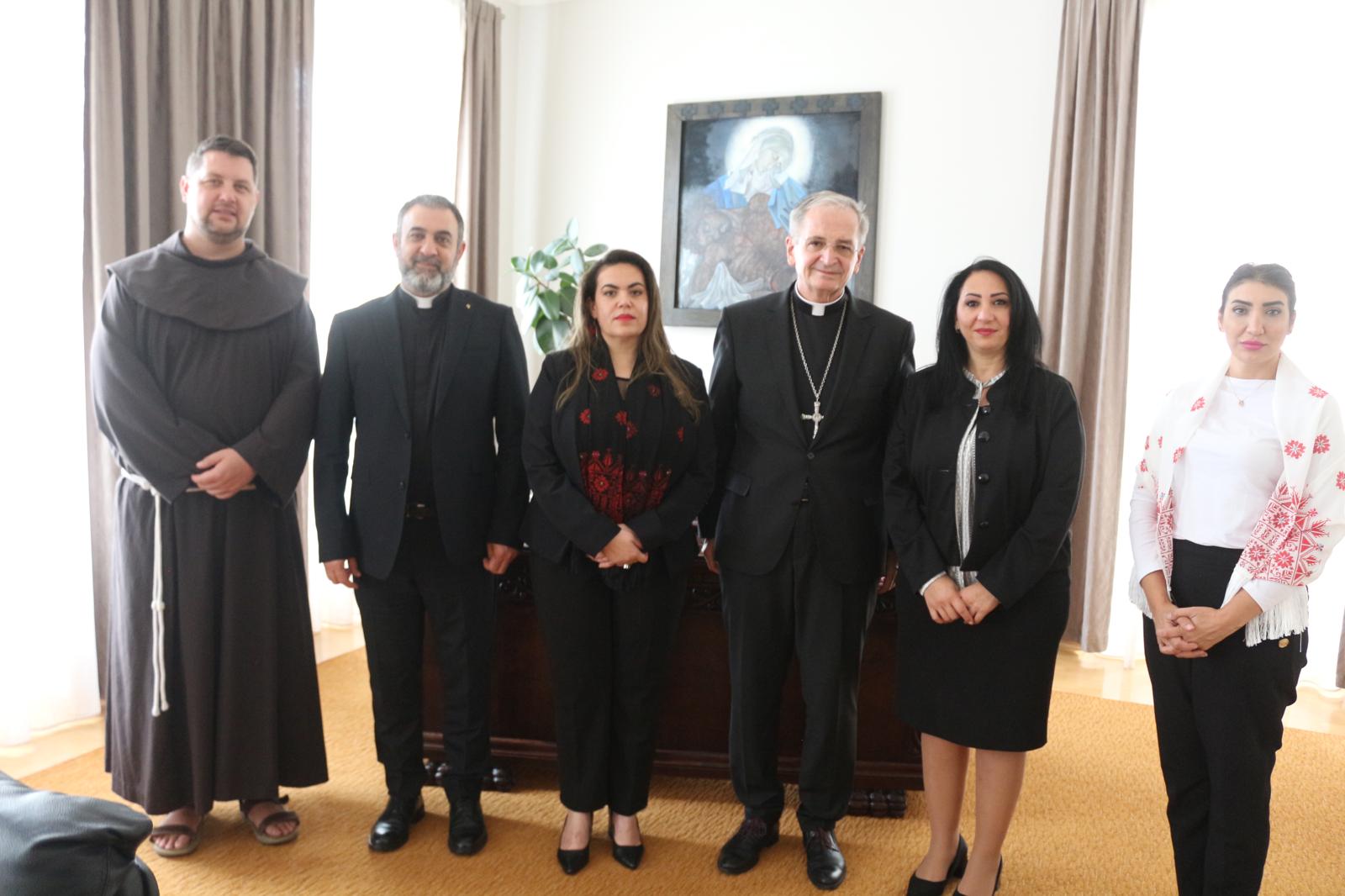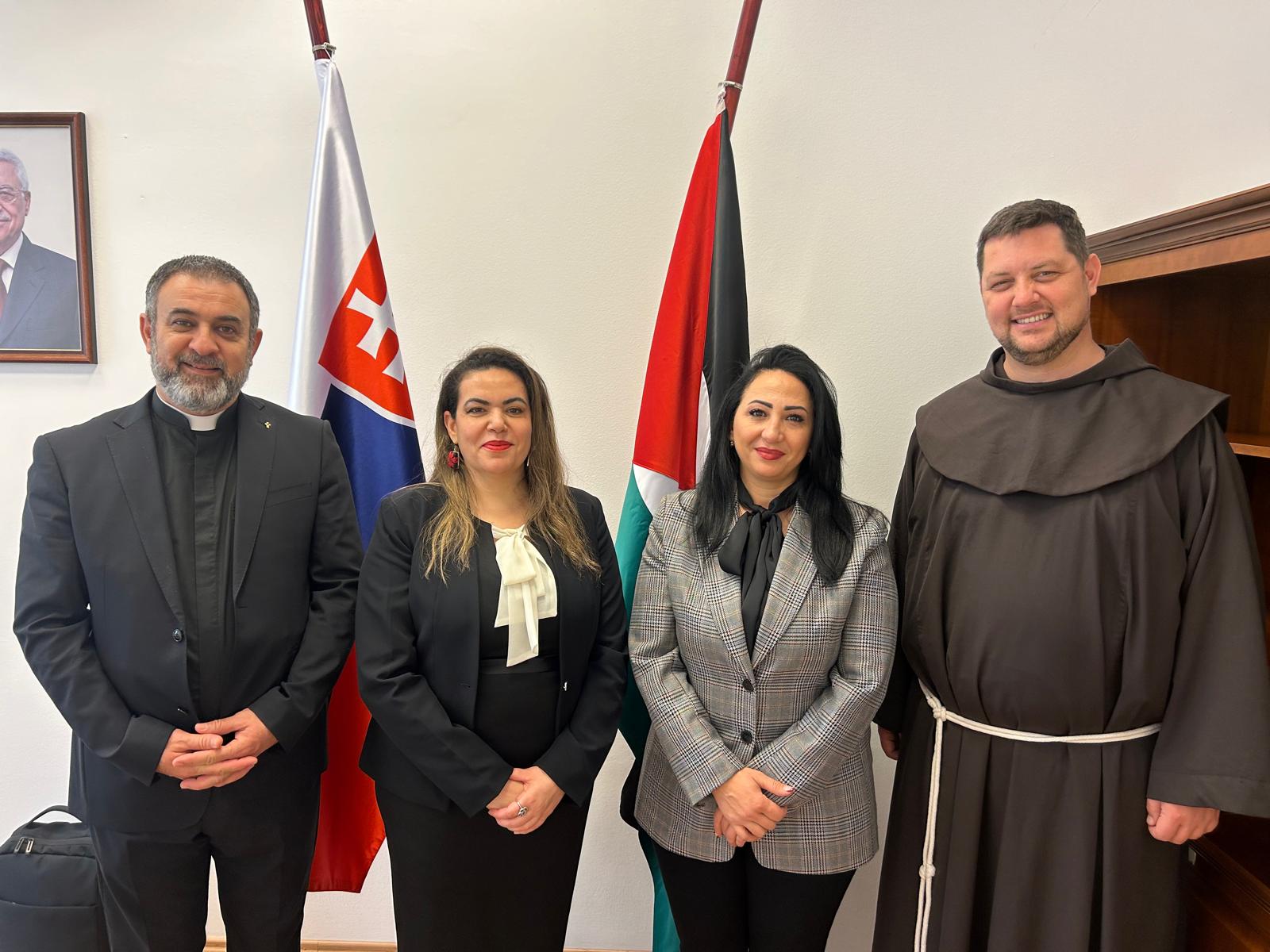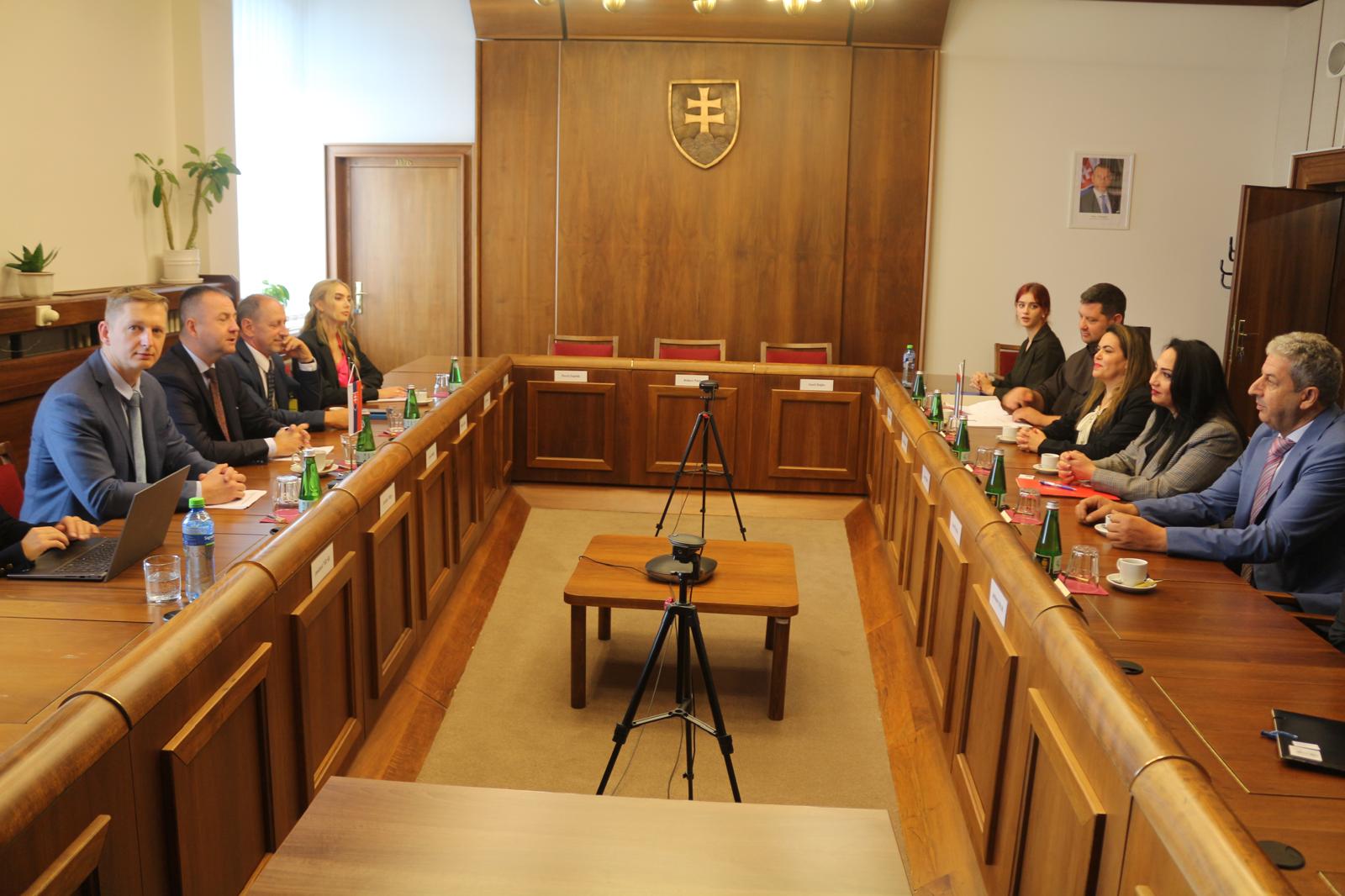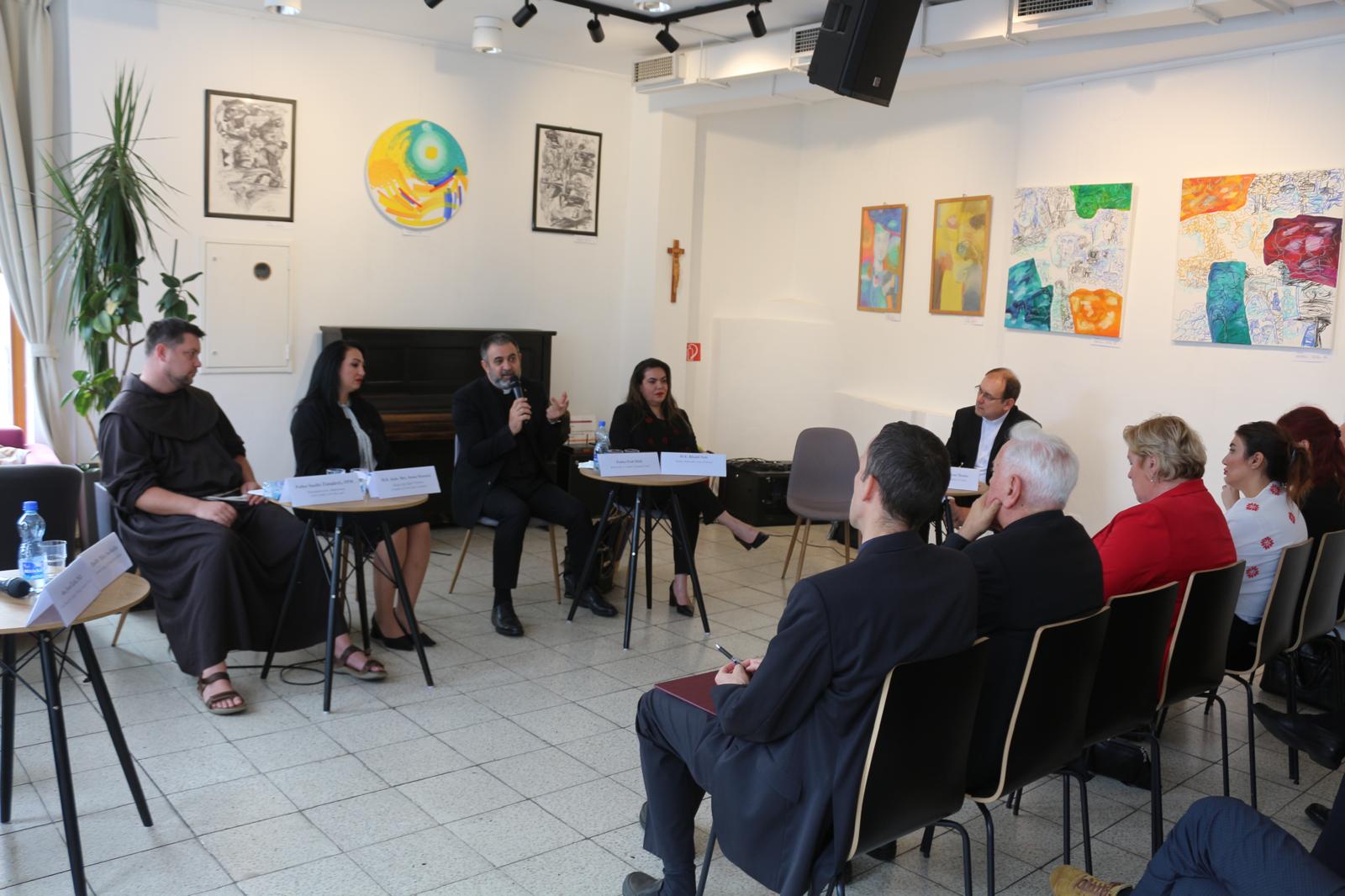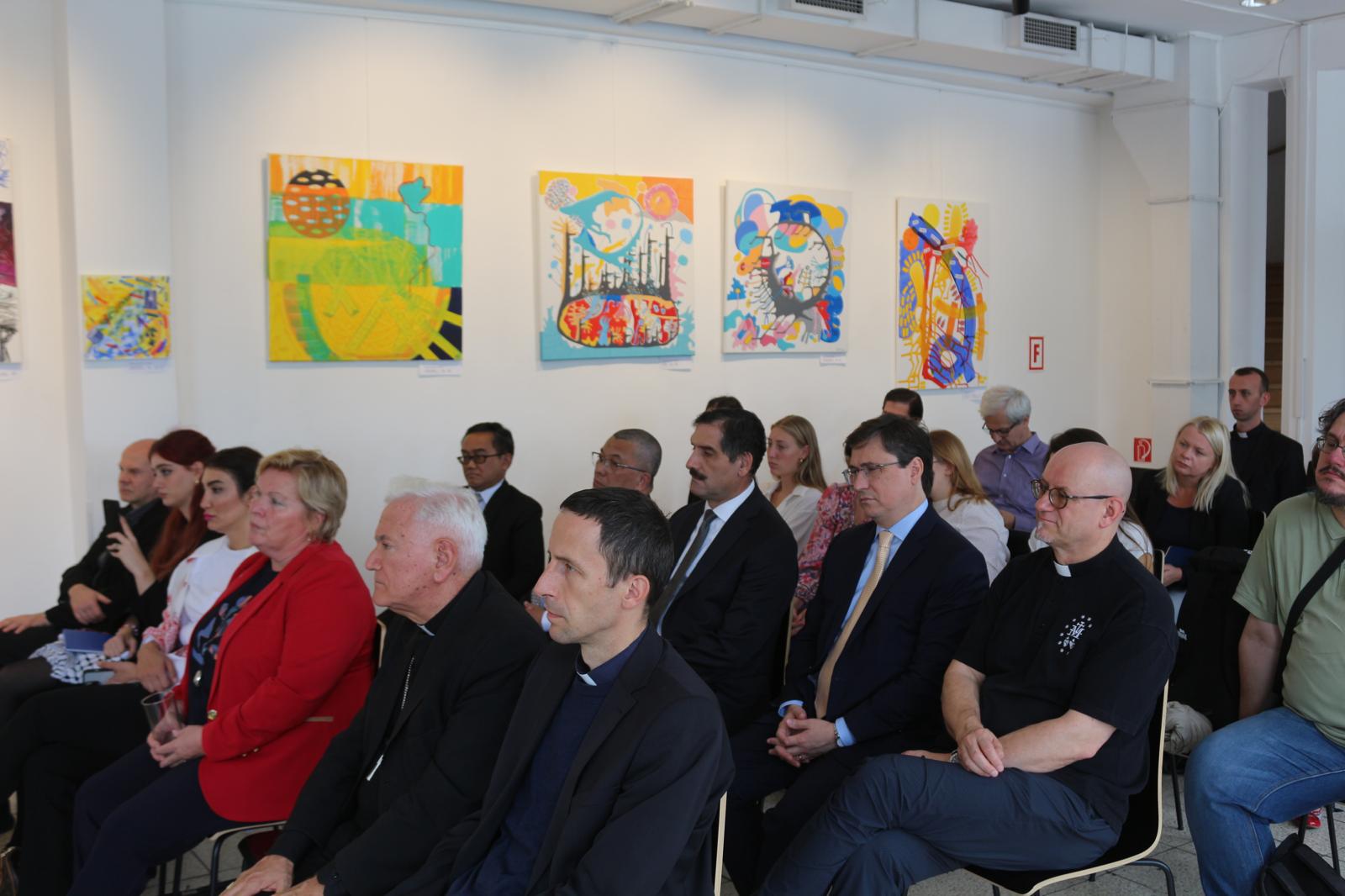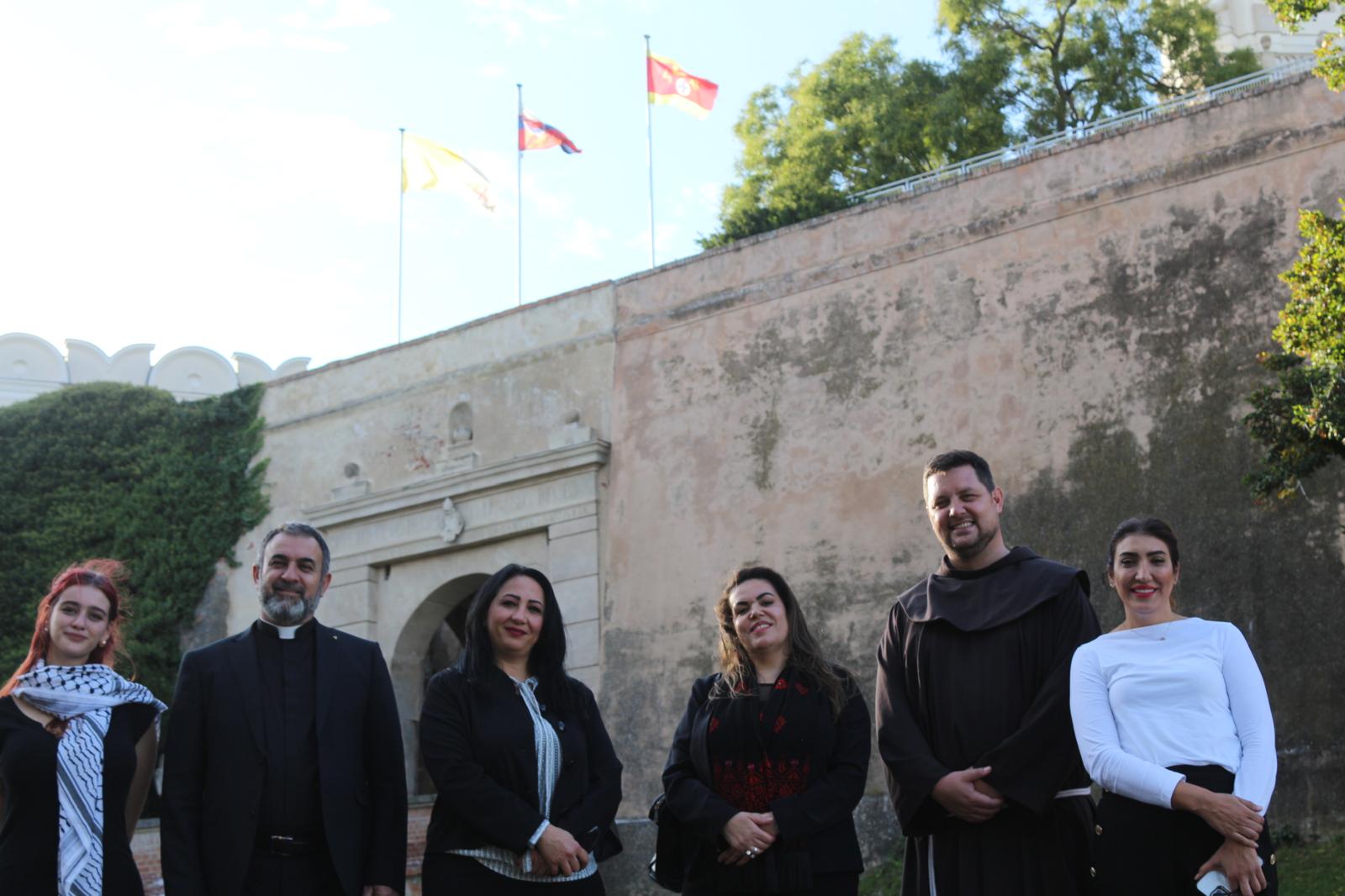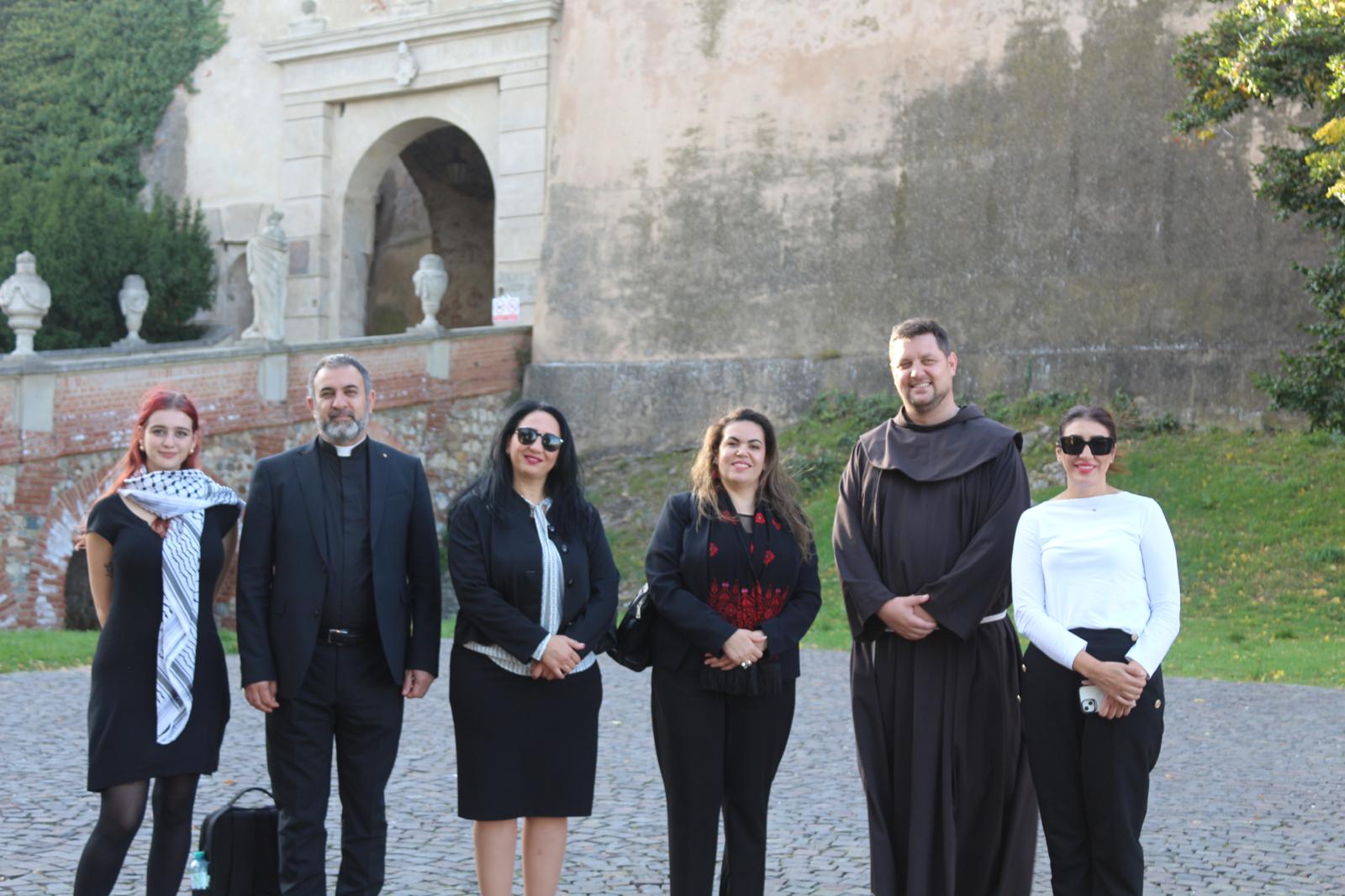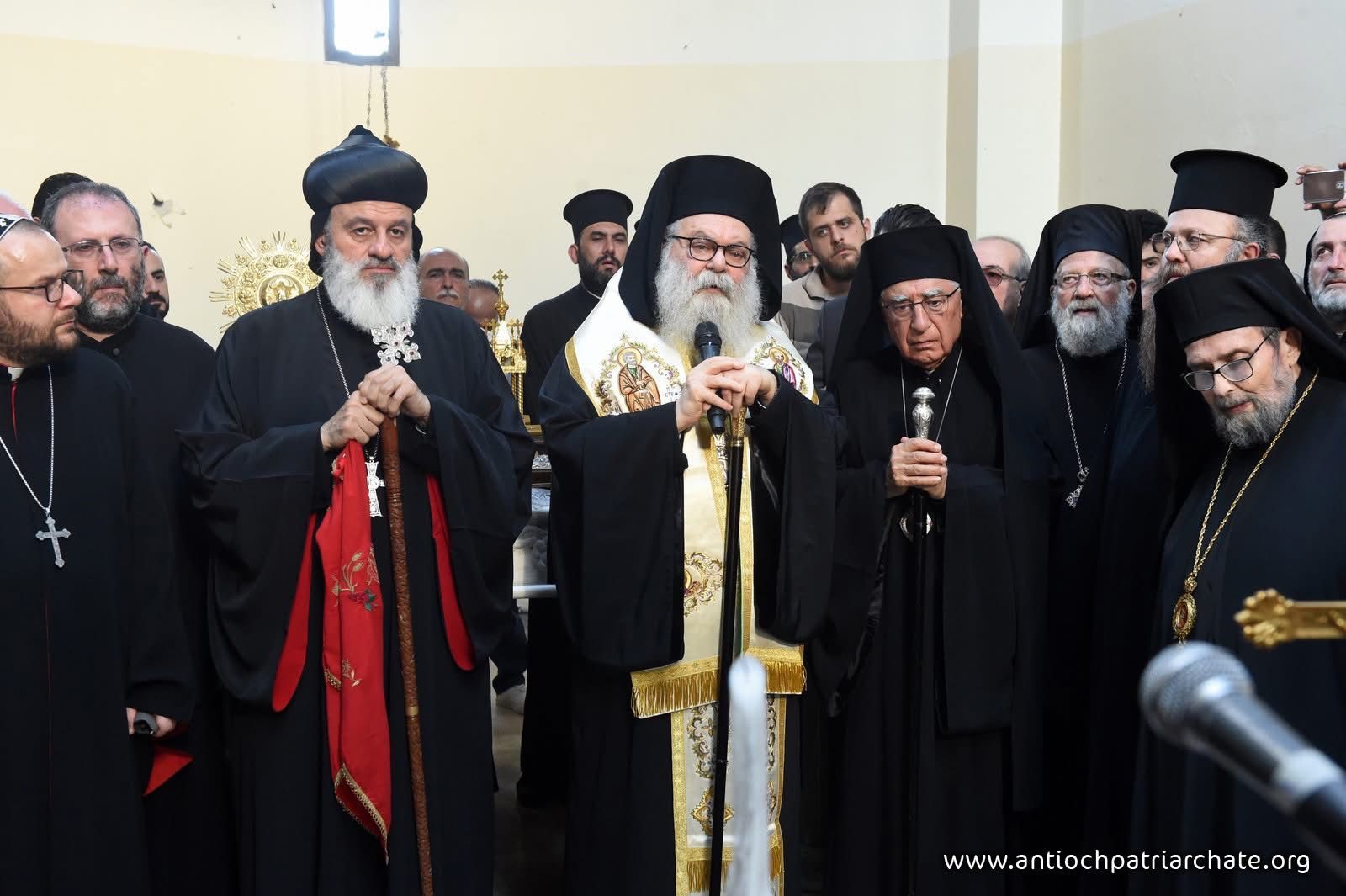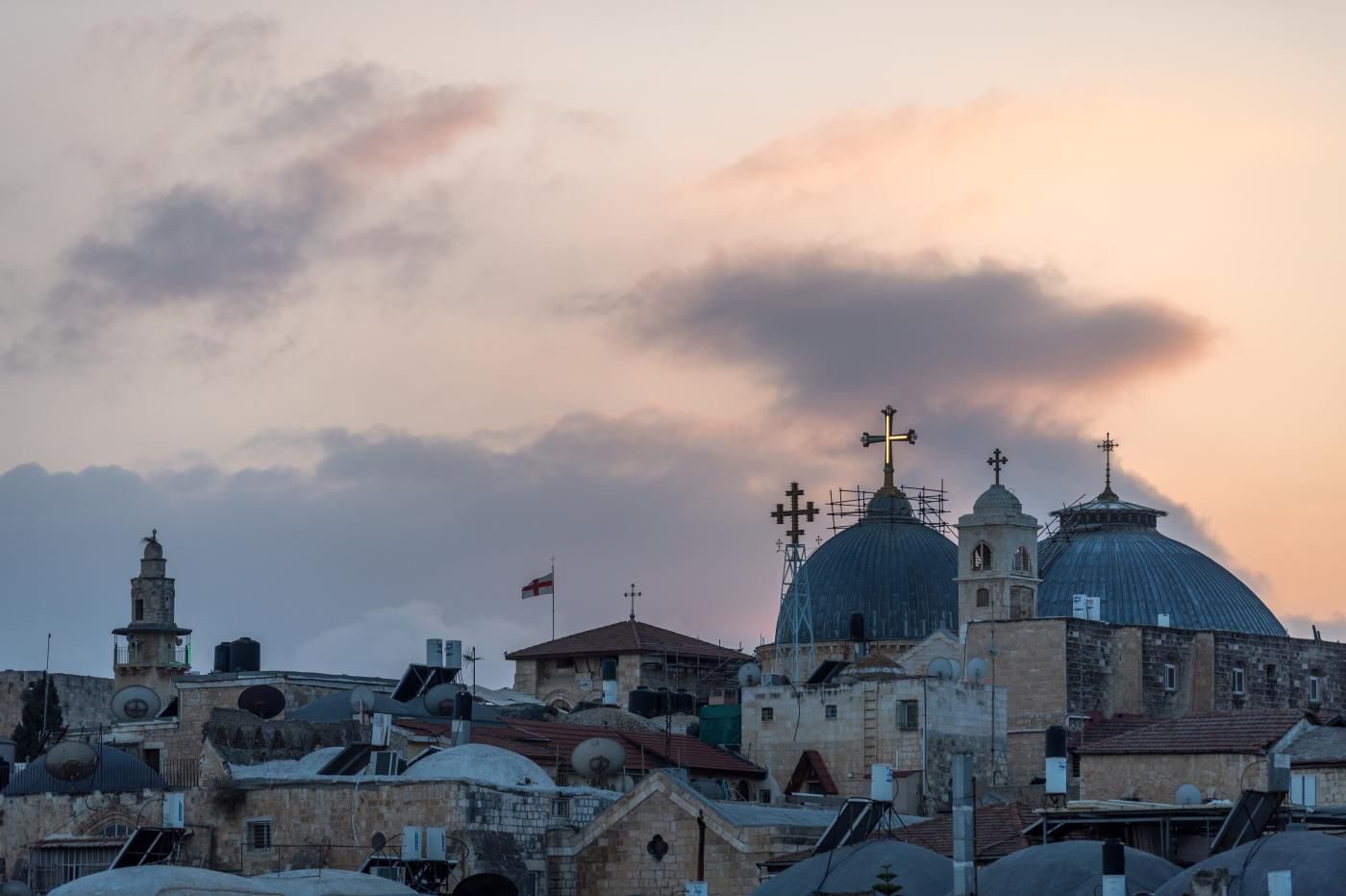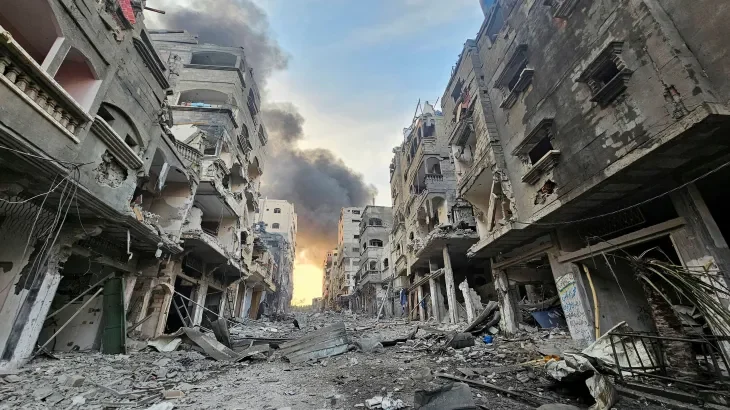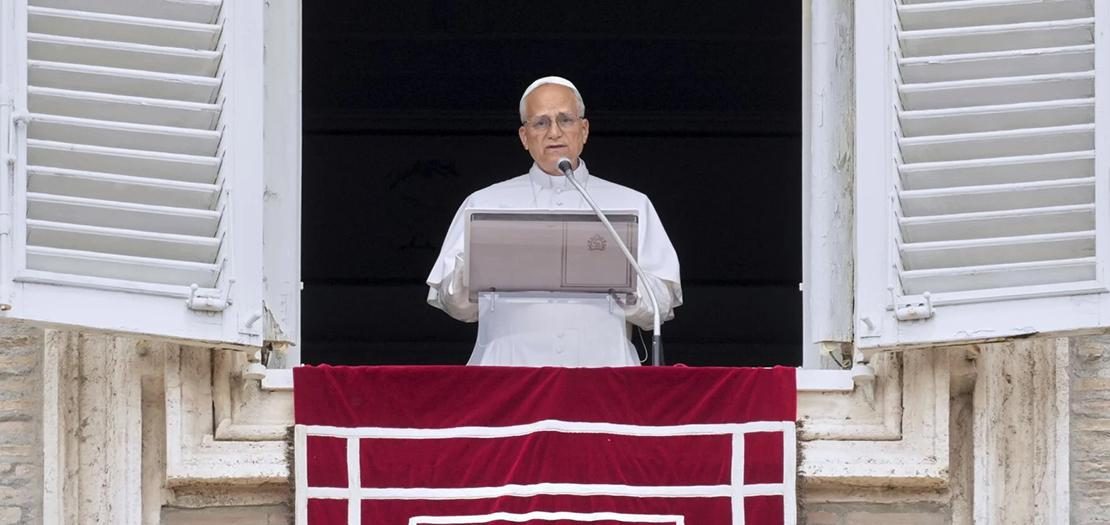As part of its tour of Central Europe, the Higher Presidential Committee for Church Affairs embarked on a two-day visit to Bratislava, the capital of Slovakia. The delegation met with several key figures, including officials, diplomats, and religious leaders.
This visit is part of the Committee’s ongoing efforts to garner international support for the Palestinian people and their rights, as outlined in international agreements and legal frameworks. The delegation also called for an end to the genocide and the ongoing aggression by Israeli forces and settlers against the Palestinian people and its Muslim and Christian holy sites.
The delegation included Ambassador Amira Hanania, member of the Higher Presidential Committee for Church Affairs and its representative in Europe; Reverend Dr. Fadi Diab from the Episcopal Church; Father Sandro Tomasevic, an advisor to the Custody of the Holy Land; and Palestine’s Ambassador to Slovakia, Safaa Al-Khalidi.
The delegation held several important meetings, including with Mr. Marian Kery, Chairman of Foreign Affairs Committee of the National Council of Slovakia. Discussions centered around ways Slovakia can support the legitimate rights of the Palestinian people, particularly their right to self-determination, and briefed him on the escalating humanitarian crisis in the West Bank, East Jerusalem, and the unfolding genocide in Gaza.
Additionally, the delegation met with Ambassador Valer Franco, Director of the Middle East and Africa Department at Slovakia’s Ministry of Foreign Affairs. They addressed the current human rights violations faced by Palestinians, including the targeting of churches and holy sites, stressing the urgent need for ending the war, ending the Israeli occupation, and protection of the Palestinian people.
Following the meeting, the Palestinian Embassy in Slovakia organized a seminar for members of the European Union, highlighting the challenges faced by the Palestinian people, including Palestinian Christians, under Israeli occupation. The delegation emphasized the forced displacement and systemic oppression as part of a broader Israeli campaign of terror and genocide against the Palestinian population.
On the second day of the visit, the delegation participated in a seminar organized by the Vatican Embassy, in collaboration with the Palestinian Embassy in Slovakia, the Faculty of Technology at the University of Trnava, civil society organizations, university professors, students, and diplomats. In this seminar, the delegation presented a detailed report on the grim realities facing Palestinians across all occupied territories, focusing on the ongoing war of extermination and forced displacement.
The discussions also shed light on the situation of Palestinian Christians and the vital role of Christian and Muslim institutions and holy sites in Palestine. The seminar emphasized the urgent need to support Palestinian civil society, including churches, and to promote peace through ending the war and the occupation.
The delegation’s visit concluded with a meeting with Archbishop Stanislav Zvolensky of Bratislava, during which both parties exchanged perspectives on the humanitarian and religious situation in Palestine and explored opportunities for collaboration between religious institutions in Palestine and Slovakia. The delegation also visited the city of Nitra, regarded as a sacred Slovak city, given its historical significance in spreading Christianity in the country.
The visit aimed to enhance international support for the Palestinian cause and shed light on the plight of Palestinians—Christians and Muslims alike—living under occupation. The delegation urged the international community to take decisive action to halt Israeli aggression against the resilient Palestinian people and called for stronger international solidarity in support of Palestinian rights. The goal remains a just and comprehensive peace, leading to the long-awaited freedom and independence of Palestine.

